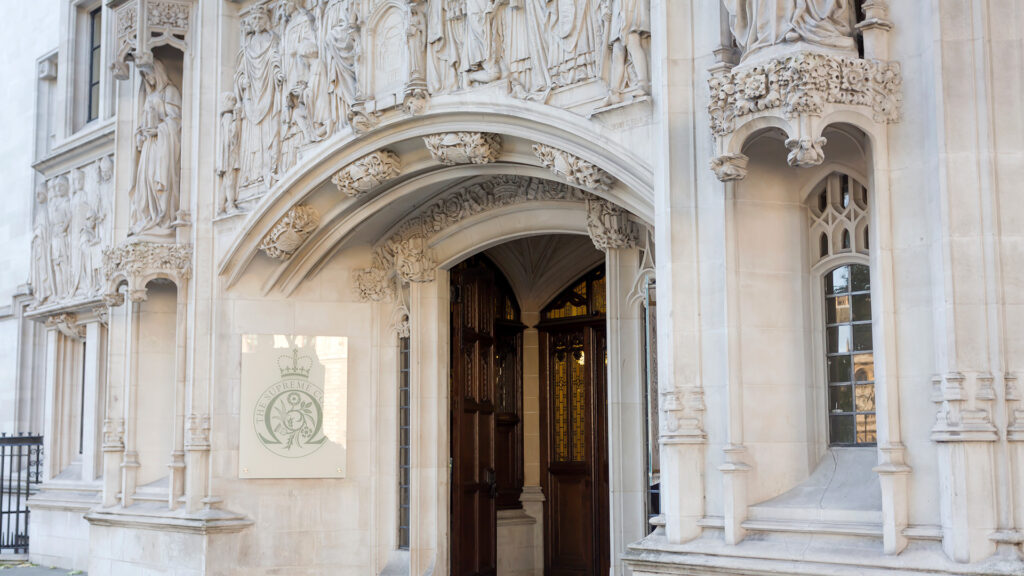
Winch Design Limited v. Le Souef & anor [2025] EWHC 120 (Comm)
The recent Commercial Court decision in Winch Design Limited v. Le Souef & anor [2025] EWHC 120 (Comm)1 provides another example of the English courts’ approach to contractual interpretation and the difficulty faced by any party seeking to rely on extraneous evidence to contradict express contract terms.
Background
Winch Design Limited (Winch) had been engaged by an Australian businessman, Mr Carl Le Souef, to provide design services for a project to build a luxury residential yacht to be funded by investors, who would each buy an apartment on the yacht. Winch and Mr Le Souef made a written agreement (the Agreement) for design services in November 2020. Winch undertook work under the Agreement and issued invoices amounting £933,750. The first invoice, for £200,000, was paid. The balance was not.
Winch ended its performance of the Agreement due to the non-payment of its invoices and brought proceedings against Mr Le Souef to recover the debt.
Issues
Mr Le Souef deployed three main arguments in response:
- that Winch’s counterparty under the Agreement was an SPV, Somnio Superyachts Pty Limited (Somnio), rather than Mr Le Souef himself;
- that the amount of work undertaken by Winch under the Agreement did not entitle it to receive the sums invoiced; and
- that Winch had agreed to forbear from demanding or suing for payment of the unpaid invoices until Somnio had obtained funding to pay.
Identity of counterparty
The argument that Somnio had been Winch’s counterparty faced an obvious (and, in the event, insurmountable) difficulty in that the Agreement named Mr Souef as Winch’s client and was signed “on behalf of Carl Le Souef”.
Mr Le Soeuf pointed to various circumstances, including that Winch had addressed its invoices to Somnio, which he argued should lead to conclusion that the Agreement was between Winch and Somnio. This approach failed because of the fundamental English law principle that whilst extraneous (i.e. parole) evidence may be used to clarify the meaning of a contract, it may not be used to contradict a clear, express contractual term, including as to the identity of a party.
Mr Le Souef advanced an alternative argument that the Agreement’s identification of him as Winch’s client was a mistake and that the Agreement should be rectified to substitute Somnio as the client. On this approach, in contrast with his primary case on contractual interpretation, Mr Le Souef was allowed as a matter of law to rely on a wide range of evidence. He did, however, need to prove that Winch and Somnio had (a) shared a common intention that Somnio should be Winch’s counterparty; and (b) outwardly expressed agreement on this subject. Mr Le Souef failed to establish either requirement, with the Judge observing that, “the evidence simply does not support that Mr Le Souef…communicated to Winch that Somnio was…to be the counterparty in the Contract and, indeed, all of the indications go the other way”.
Payment Terms
Mr Le Souef’s argument that Winch had not done enough work under the Agreement to be entitled to payment of its invoices was also a challenge to the Agreement’s express contractual terms. The Agreement contained a payment schedule according to which Winch was entitled to issue and receive payment of invoices on certain dates. The Agreement did not require Winch to complete certain stages of design work as a pre-condition to payment.
Mr Le Souef might have been entitled to reduce his liability by counterclaiming for damages on the basis that Winch had failed to perform obligations under the Agreement – and a counterclaim of sorts was pleaded – but the Judge concluded that there was no evidence of any such failure by Winch. Winch was therefore entitled to receive payment in full.
Alleged forbearance
The most unusual aspect of the case was Mr Le Souef’s suggestion that Winch, despite repeatedly writing to demand payment, had orally agreed not to pursue its entitlement until Somnio secured third party funding for the project. Mr Le Souef’s evidence was that he had received an assurance to that effect from Winch’s non-executive chairman, Clive Beharell, during a dinner at Lucio’s restaurant in Chelsea.
Mr Beharell denied saying any such thing, and the Judge preferred his evidence: “I have no hesitation in rejecting Mr Le Souef’s account of the…meeting and preferring Mr Beharrell’s account…”.
There was no evidence that Mr Le Souef had informed any colleagues that he intended to negotiate a deal with Mr Beharrell. There was no evidence that either Mr Le Souef or Mr Beharrel had informed anyone after the dinner that a deal had been agreed. In fact, there was no written evidence whatsoever of an agreement by Winch to forbear. The Judge also observed that parts of Mr Le Souef’s evidence about the dinner conversation, “had all the hallmarks of having been crafted by him with his lawyers”.
Conclusion
This joins a long list of cases in which the English Courts have given effect to express written contract terms and rejected attempts to contradict or rewrite them by reference to extraneous things said or done by the parties. It should reinforce confidence in the value of clearly written English law contractual documents.
Footnote









